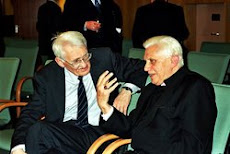"Firstly, he [Zizek] opposes Levinas' theorization of the other for being one sided and thus on its own terms the most grotesque violence against the other. He argued that the politicization of our society is as "the fear of the neighbour" - the neighbor is the homely face under which lurks an evil, (uncanny) spectre. Fear of the neighbor is related to proximity - the global village, and communication. More communication, more epistemic proximity between societies which are traditionally seperated by a gulf of a thousand miles, means more conflict between them (....). Alianation is sometimes useful - alianation maintains the abyssmal gulf between the self and the other. Habermas, others, argue language is the essential structural tool of unity - it is through language that we can understand each other, and even in conflict, conflict through language presupposes that we comprehend each other to some extent. Zizek flips this: Language is perhaps not the greatest tool of unity, but the greatest divider. It's because of language that it is easier to communicate with a Mongolian's dog than with the Mongolian person. Language makes it possible for us to be much more divided and in conflict than animals."
from here
Subscribe to:
Post Comments (Atom)





No comments:
Post a Comment